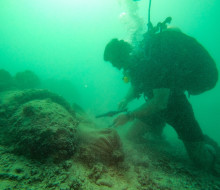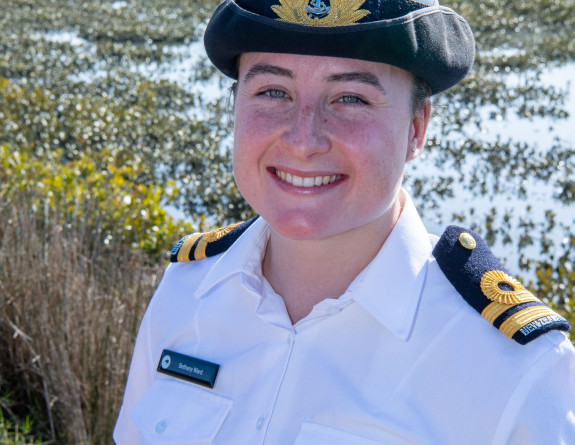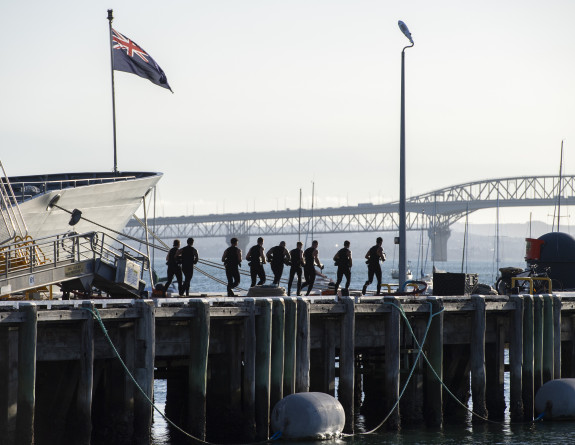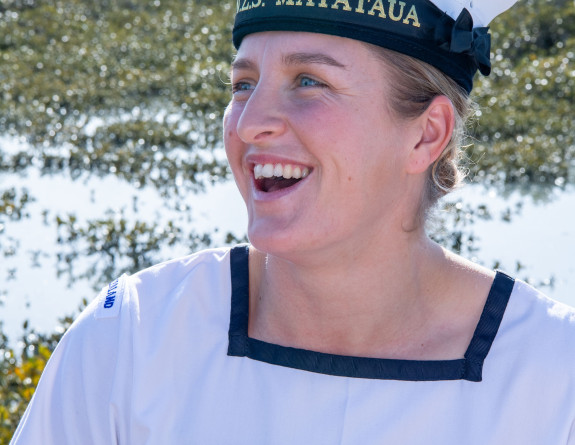
Second World War-era bombs in Vanuatu made safe by Navy divers
26 June 2024
Unfortunately you are viewing this website on an outdated browser which does not support the necessary features for us to provide an adequate experience. Please switch to a modern browser such as latest version of Google Chrome, Mozilla Firefox, Apple Safari or Microsoft Edge.
Ngā mihi nui
For the first time, two female divers have graduated into the Royal New Zealand Navy (RNZN) Clearance Diving trade.
Lieutenant Bethany Ward and Able Diver Petra Dye-Hutchinson were among 10 personnel to complete the five-month course, which provides training in military diving equipment and techniques, mine countermeasure, underwater maintenance and battle damage repair, demolitions, maritime explosive ordnance disposal and search techniques.
“A number of females have completed the Defence Divers Course over the years but for a variety of reason none have ever taken the next step to becoming full-time clearance divers,” says Commander Trevor Leslie, Commanding Officer HMNZS Matataua, the RNZN’s littoral warfare unit.
“The significance of Lieutenant Ward and Able Diver Dye-Hutchinson’s achievements is considerable, but it’s now business as usual for these two divers as they undertake consolidation training and deploy on operations with their shipmates at HMNZS Matataua.”
Able Diver Dye-Hutchinson joined the New Zealand Army in 2015 and became an emergency responder, posted to Burnham, Waiouru and Linton military camps, but after starting the Defence divers course the Aucklander ‘took the leap’ to join the Navy.
“My firemaster at the time had given me information about the dive course when I expressed my love for the sea. Years passed and then there was an opportunity for me to go on the course. I’d never done a dive before, but by half way through the course I was just loving it,” says 28-year-old Able Diver Dye-Hutchinson.



Able Diver Bethany Ward (left), Able Diver Petra Dye-Hutchinson (right) and Navy Clearance Diver training at Devonport Naval Base (middle).
Originally from Plymouth in England, Lieutenant Ward already had a taste of Navy life having served in the Royal Navy, and then completing an exchange with the RNZN as a watchkeeper on HMNZS Canterbury.
“I really enjoyed the experience here, so joined last year. My navy base in the UK was in Devonport and now I’m in Devonport Naval Base in Auckland.
“I wanted to be a diver in the Navy since I was 16. I saw the divers training in the UK and asked, ‘are girls allowed to do that?’ They were like ‘yep, we have female divers’,” says the 26-year-old.
Both divers say the trade has many challenges, especially when working in a marine environment.
“We have long days and are put in uncomfortable situations. A lot of the time we don’t know what’s coming next, especially dealing with tide and weather changes. You really have to go with the elements."
“But I love how versatile the trade is. I like the fact it’s a community of people working to really high professional standards, the variety of day-to-day work and that it’s a challenge physically,” Lieutenant Ward said.
Able Diver Dye-Hutchinson said that even though there were challenges, the rewards were many.
“The best thing about learning something that’s hard, is you feel like a child in that moment, then all of a sudden something clicks and you get it right. Especially underwater, it’s the moment in the team when it all comes together and you solve the problem. Then things that were really difficult become second nature,” she said.